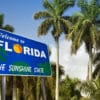In a ruling that could be seen as a victory for property owners and developers, the U.S. Supreme Court limited the U.S. Environmental Protection Agency’s (EPA) authority over areas that it defines as wetlands.
The court ruled in Sackett v. EPA that the agency does not have the authority to regulate discharges into some wetlands located near bodies of water. The ruling was rooted in a lawsuit brought by Michael and Chantell Sackett, a couple who acquired a 0.63-acre lot located roughly 300 feet across a road from Priest Lake in Idaho in 2005 for $23,000. Two years later, they began preparations to build a three-bedroom home on the property before federal officials ordered them to stop. EPA scientists and the Army Corps of Engineers argued their property was a wetland covered by the Clean Water Act, claiming there was a “shallow subsurface flow” connecting their parcel to it to Priest Lake – which required the couple to obtain federal permits in order to build on their land. The EPA attempted to stop the Sacketts from suing the agency, but the couple brought the EPA before the Supreme Court in 2012, which affirmed they had a right to sue the agency.
In today’s ruling, the Supreme Court reversed a decision by the U.S. Court of Appeals for the 9th Circuit that sided with the EPA. While the court was unanimous in backing the Sacketts, it split 5-4 for in the reasoning for its decision. Justice Samuel Alito, representing the court’s majority, stated the Clean Water Act covers only wetlands “with a continuous surface connection” to those waters.
Justice Brett Kavanaugh joined the court’s three liberal justices in a concurring opinion, warning that in “narrowing the act’s coverage of wetlands to only adjoining wetlands, the court’s new test will leave some long-regulated adjacent wetlands no longer covered by the Clean Water Act, with significant repercussions for water quality and flood control throughout the United States.”
EPA Administrator Michael S. Regan issued a statement after the ruling that said, “I am disappointed by today’s Supreme Court decision that erodes longstanding clean water protections. The Biden-Harris Administration has worked to establish a durable definition of ‘waters of the United States’ that safeguards our nation’s waters, strengthens economic opportunity, and protects people’s health while providing the clarity and certainty that farmers, ranchers, and landowners deserve. These goals will continue to guide the agency forward as we carefully review the Supreme Court decision and consider next steps.”
Damien Schiff, the Sacketts’ lawyer, said the court “returns the scope of the Clean Water act to its original and proper limits.”















